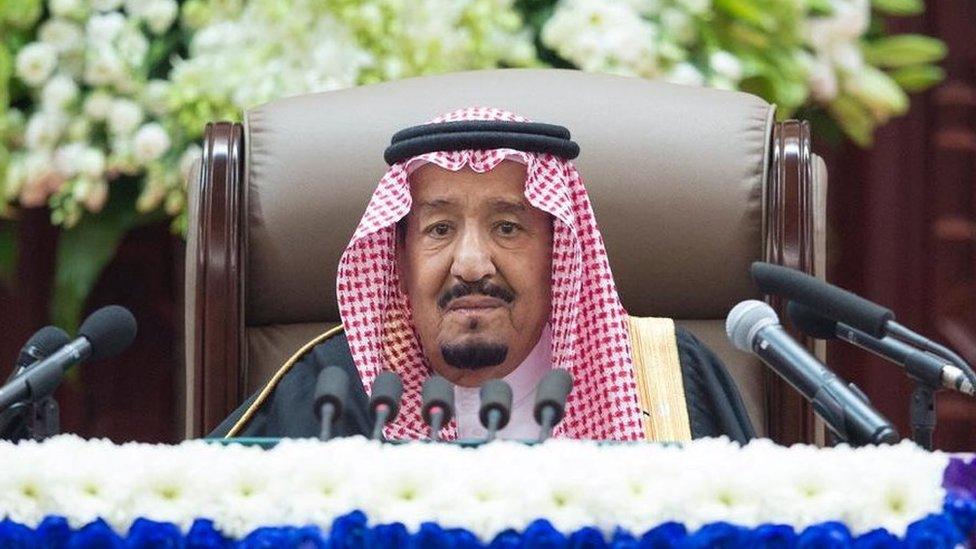Jamal Khashoggi murder trial opens in Saudi Arabia
- Published
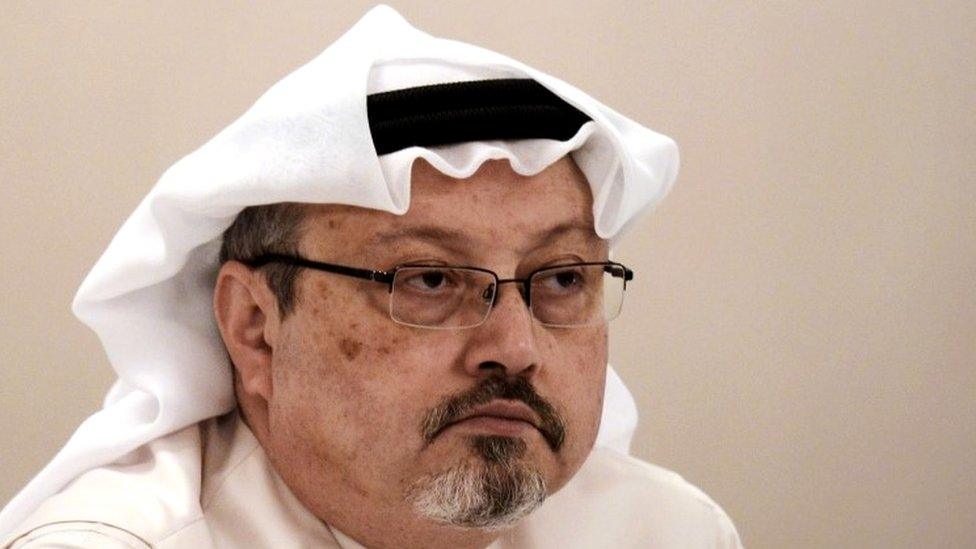
Jamal Khashoggi was killed after entering the Saudi consulate in Istanbul on 2 October
The trial of 11 individuals over the murder of Saudi journalist Jamal Khashoggi has begun in the Saudi capital, Riyadh, state media report.
Prosecutors have asked for the death penalty for five of the defendants.
Khashoggi, a prominent US-based critic of the Saudi government, was killed after entering the Saudi consulate in Istanbul, Turkey, on 2 October.
Prosecutors say he was murdered in a "rogue" operation by agents sent to persuade him to return to the kingdom.
Saudi Arabia has refused Turkey's request to extradite 18 suspects for trial, including 15 alleged agents who it says flew to Istanbul to carry out the killing.
What do we know of the trial?
Little information was released by state media other than that the first session of the criminal court's hearing of the case had begun and that the 11 defendants and their lawyers were present.
Defence lawyers requested a copy of the indictment sheet and time to review it. No date was set for the next hearing.
Requests to Turkey for evidence had not yet been answered, the attorney general said in a statement carried on the Saudi Press Agency.
No names of the defendants have been officially released.
Earlier statements said another 10 people were also being investigated.
What have the Saudis said so far?
In November, Deputy Public Prosecutor Shalaan bin Rajih Shalaan said investigators had concluded that an intelligence officer ordered Khashoggi's murder, applying a lethal injection inside the consulate.
The officer had been tasked with persuading the dissident journalist to return to the Gulf kingdom, he added.
Khashoggi's body was dismembered inside the building and the body parts were then handed over to a local "collaborator" outside the grounds, according to Mr Shalaan.
The remains have not yet been found.
Are there any clues about the defendants' identities?
Turkey has identified 15 men it believes to be Saudi agents arriving at and departing from Istanbul's international airport around the time of the killing.
But whether any of them are now on trial in Riyadh is unknown.
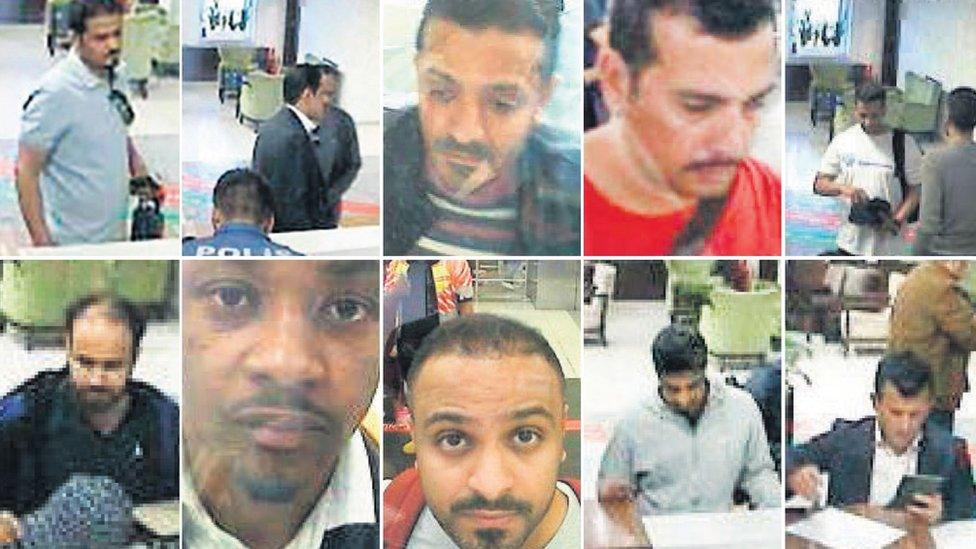
Some of the men captured on Turkish CCTV. It is unclear if any of them are on trial
One man who will not be on trial is Crown Prince Mohammed bin Salman, the son of King Salman and Saudi Arabia's de facto ruler, who has been accused by some in the West of being behind the killing.
US officials have reportedly said such an operation would have needed the prince's approval, external.
Prince Mohammed has denied any role in what he has called a "heinous crime that cannot be justified".
The US has imposed sanctions on 17 Saudi officials, including Saud al-Qahtani, a former adviser to the crown prince who it alleged was "part of the planning and execution of the operation" that led to Khashoggi's murder. Again, it is unclear if any of the 17 are being tried.

Will it tell us the whole story?
Analysis by Frank Gardner, BBC security correspondent
The key question a lot of people will be asking about this trial is: Will it tell us the whole story about how Khashoggi died?
The past history of previous trials in Saudi Arabia would tend to indicate that it won't.
Commenting on the first day of the trial today, Amnesty International said "Saudi Arabia's criminal justice system falls far short of international law".
The human rights group, which has called for a UN investigation into the journalist's murder, added that "the impartiality of any investigation by the Saudi authorities is inevitably highly questionable".
The Saudi authorities have previously defended their justice system saying it is based on Sharia (Islamic law) and that therefore it is above criticism.
But Saudi trials are notoriously opaque and due to the absence of a standard criminal code judges are often given leeway to hand out arbitrary punishments.

Who was Jamal Khashoggi?
As a prominent journalist, he covered major stories including the Soviet invasion of Afghanistan and the rise of Osama Bin Laden for various Saudi news organisations.
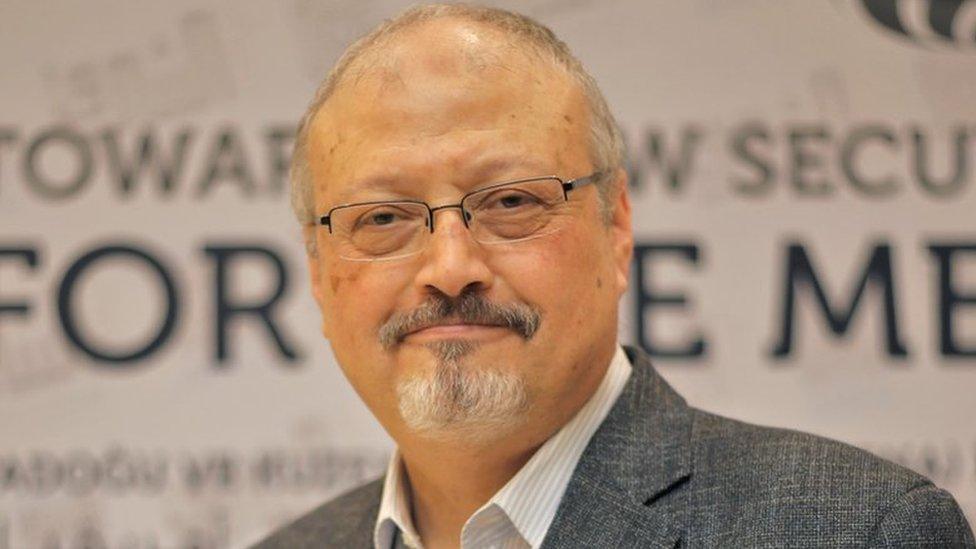
Jamal Khashoggi had gone to Istanbul to obtain a marriage document
For decades he was close to the Saudi royal family and also served as an adviser to the government.
But he fell out of favour and went into self-imposed exile in the US last year. From there, he wrote columns for the Washington Post in which he criticised the policies of the crown prince.
In his first column for the newspaper, Khashoggi said he feared being arrested in an apparent crackdown on dissent overseen by the prince.
In his last column, he criticised Saudi involvement in war in Yemen, external.
- Published21 November 2018

- Published21 November 2018
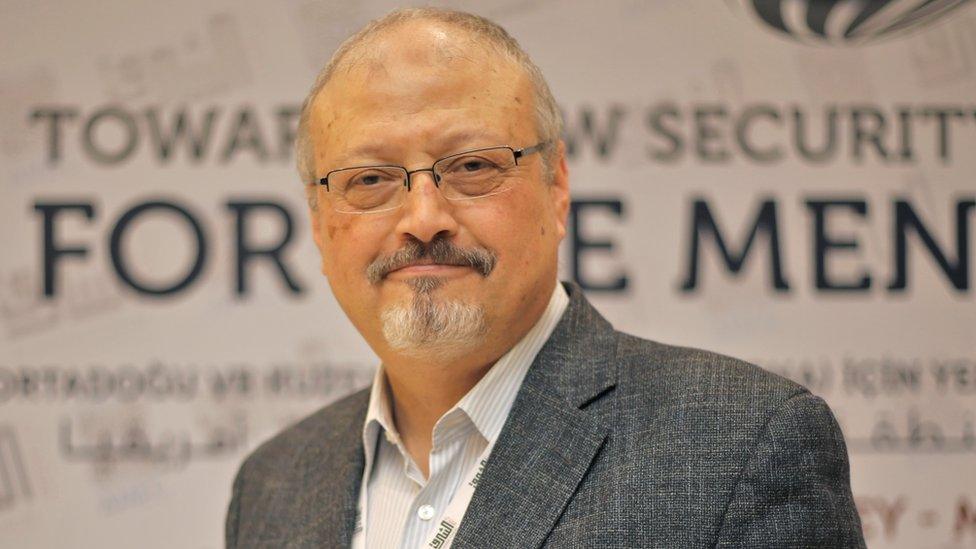
- Published17 November 2018

- Published19 November 2018
